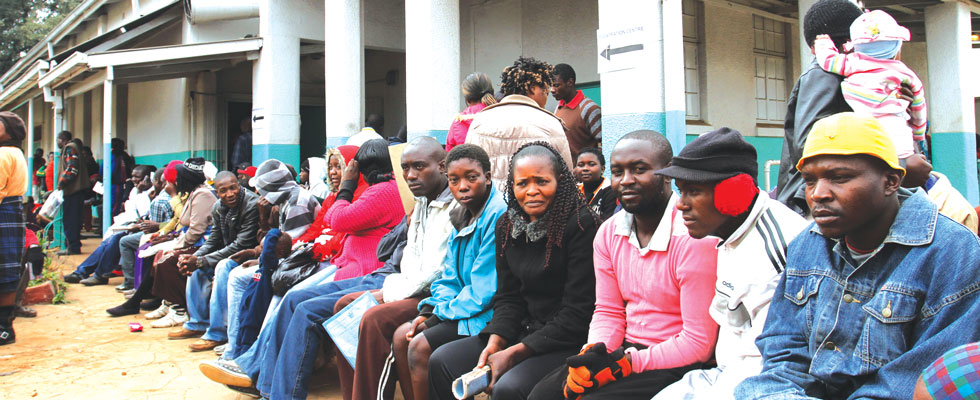
AS has become the norm in our heavily polarised society, the just ended extra-ordinary session of the Sadc Summit held in Maputo delivered very conflicting outcome statements. Sadc upholds July 31 poll date read one headline and Sadc leaders humiliate Mugabe screamed another.
voting4zimbabwe
Many citizens were left confused by this blatant and disturbing show of polarisation in our media. How unfortunate. What is clear however is that whether it is July 31 or August 14, the onus will still remain on the voters to decide the fate of those contesting elections, and the reality is that unlike previous elections, the youth may just be the game-changers, come elections.
While the mobile voter registration exercise is still ongoing, a lot of stakeholders have exerted their efforts towards ensuring that the glaring absence of youth (those in the 18–35 years age group) from the voters roll is reversed. The country has witnessed over the past three years, concerted efforts by various players to proactively encourage and help youth to register as voters so that they are eligible to vote come election time.
During the last elections in 2008, which were unfortunately de-legitimised by the violence of post-March 29, a lot of the youth’s energy was negatively channelled towards committing acts of violence on behalf of the elderly politicians. While many young people were active as campaign agents, polling agents, election observers and other such roles, a lot of youth were disenfranchised of their right to vote. The main reason for many was that they were not registered as voters. For the few that were registered, they either found themselves outside their voting areas or were too pre-occupied to carry through the actually casting of the ballot.
The net result was that not many youth were able to vote. For those who eventually voted during the June 27 run-off, the main driver was coercion and intimidation.
The next elections — July 31 or August 14, or any other date — present a unique opportunity for young people to exercise their inalienable right to vote and in the process flexing their muscle in exercising the undeniable advantage they hold over any other social group. And this is their strength in numbers, buttressed by their youthful energy. There is no doubt that the record turnout witnessed during the March 16 referendum was a result of the participation of first-time voters; the many youth who had never voted in their lives and found a relaxed opportunity to do so as presented by the referendum. It is true that if the Zimbabwe Electoral Commission (Zec) were to provide a current copy of the voters roll disaggregated by age, the majority of new entrants to this roll are young people, many who have actively participated in previous elections, but not as voters. Further significant entrants will be purely first generation voters, participating in electoral issues for the first time.
Having also witnessed the tenure of the inclusive government, these young voters may as well have been presented with an opportunity to discern for themselves the character, strengths, weaknesses and other characteristics of the main contesting parties.
- Chamisa under fire over US$120K donation
- Mavhunga puts DeMbare into Chibuku quarterfinals
- Pension funds bet on Cabora Bassa oilfields
- Councils defy govt fire tender directive
Keep Reading
Unlike previous elections where voters have been presented with a “ruling party – opposition party” contest, the game this time around is a bit different. That is why many are of the firm belief that the next election will be decided more on issues and not emotions.
One thing that Zimbabweans are really tired of is political bickering at the expense of addressing their most salient issues.
And for those in the majority (in terms of the general population) — the youth — their choice at the ballot will basically hinge on the party that best articulates how they can address rampant poverty among youth and deliver employment opportunities and economic empowerment; it will definitely boil down to which party best presents a sound strategy to rescue the education system of this country; to address the young people’s health concerns, and indeed which party is prepared to ensure that youth occupy not only positions of authority in their youth wings, assemblies, leagues or any other such name, but are an integral and important component of the mainstream political and government decision-making structures.
It therefore remains important that any party which is serious about governing this country ought to give careful consideration to addressing the various issues pertinent to the youth, and clearly and concisely address these in their manifestos.
It remains true that come elections, whenever they will be held, the youth are the undisputed game-changers on the electoral outcome.







